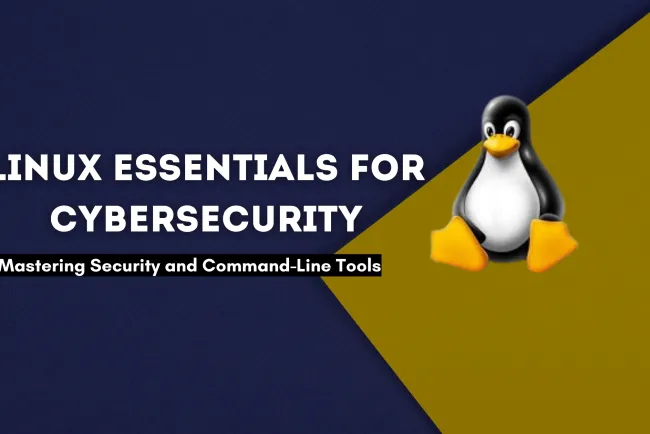Top Online Cybersecurity Courses for Beginners | A Complete Guide
Online cybersecurity courses provide a flexible and affordable way for beginners to start their journey in this high-demand field. Free courses from platforms like Google Cybersecurity Certificate, Cisco Networking Academy, TryHackMe, and Cybrary offer foundational knowledge, while paid certifications like CompTIA Security+, CEH, and OSCP help build credibility for job seekers. Hands-on training from platforms like TryHackMe, Hack The Box, and Udemy ensures practical experience, essential for real-world cybersecurity roles. Whether you're looking to learn for free or invest in a certification, structured online courses make it possible to enter cybersecurity without prior IT experience.

Table of Contents
- Introduction
- Why Learn Cybersecurity Online?
- Best Free Online Cybersecurity Courses for Beginners
- Best Paid Online Cybersecurity Courses for Beginners
- Best Online Cybersecurity Certification Programs
- Best Platforms to Learn Cybersecurity Online
- FAQs
Introduction
Cybersecurity is one of the most in-demand fields today, offering excellent job opportunities, high salaries, and career stability. If you are a beginner looking to start your journey in cybersecurity, online courses provide a convenient and affordable way to gain essential skills. But with so many courses available, how do you choose the right one?
This blog will cover:
- The best online cybersecurity courses for beginners
- Free and paid cybersecurity courses
- Certifications that boost your career
- Hands-on training platforms for real-world experience
By the end of this guide, you'll know exactly where to start your cybersecurity learning journey.
Why Learn Cybersecurity Online?
1. Flexibility and Accessibility
Online cybersecurity courses allow you to learn at your own pace from anywhere.
2. Affordable Learning
Many cybersecurity courses are free or cost significantly less than traditional education.
3. Hands-on Experience
Platforms like TryHackMe, Hack The Box, and Cybrary provide interactive labs for practical learning.
4. Career Growth
Cybersecurity jobs are in high demand, and online courses can help you acquire the necessary skills.
Best Free Online Cybersecurity Courses for Beginners
If you’re looking for free cybersecurity courses, here are some of the best options:
1. Google Cybersecurity Professional Certificate (Coursera - Free Trial)
- Covers fundamental cybersecurity concepts
- Hands-on labs and real-world case studies
- Great for beginners with no experience
2. Introduction to Cybersecurity (Cisco Networking Academy)
- Free beginner-friendly course
- Covers networking basics and security principles
- Self-paced learning
3. TryHackMe - Free Beginner Labs
- Hands-on penetration testing labs
- Covers ethical hacking, web security, and network security
- Interactive and fun learning
4. Cybrary Free Cybersecurity Courses
- Offers free introductory courses on security fundamentals
- Covers SOC analyst training, penetration testing, and more
5. SANS Cyber Aces Online
- Provides free foundational training in cybersecurity
- Covers networking, operating systems, and security basics
Best Paid Online Cybersecurity Courses for Beginners
If you’re willing to invest in a high-quality cybersecurity course, these paid options provide the best value:
| Course Name | Provider | Price | Features |
|---|---|---|---|
| CompTIA Security+ Certification | Udemy, Pluralsight | $100 - $400 | Industry-recognized certification, Security fundamentals |
| Certified Ethical Hacker (CEH) | EC-Council | $1,199 | Ethical hacking, penetration testing, hands-on labs |
| IBM Cybersecurity Analyst Certificate | Coursera | $49/month | SOC analyst training, security fundamentals |
| Practical Ethical Hacking - TCM Security | Udemy, TCM Security Academy | $30 - $100 | Hands-on penetration testing, real-world security testing |
| Offensive Security Certified Professional (OSCP) | Offensive Security | $1,499 | Advanced penetration testing, real-world attack simulation |
Best Online Cybersecurity Certification Programs
Cybersecurity certifications can help beginners get jobs faster. Here are some beginner-friendly certifications you can earn online:
- CompTIA Security+ – Great for entry-level security jobs
- Certified Ethical Hacker (CEH) – Focuses on ethical hacking and penetration testing
- Google Cybersecurity Certificate – Ideal for beginners with no IT background
- Microsoft Security Fundamentals – Covers Microsoft security tools and concepts
- Cisco CCNA Cyber Ops – Prepares you for a SOC analyst role
Best Platforms to Learn Cybersecurity Online
If you're looking for hands-on learning, these platforms provide interactive labs and real-world simulations:
1. TryHackMe
- Best for beginners learning ethical hacking
- Free and paid labs for penetration testing
2. Hack The Box
- Advanced cybersecurity challenges
- Great for ethical hackers and penetration testers
3. Cybrary
- Free and paid cybersecurity courses
- Covers security fundamentals and incident response
4. Udemy
- Affordable cybersecurity courses
- Beginner to advanced-level courses available
5. Coursera
- University-level courses in cybersecurity
- Certification programs from Google, IBM, and more
Conclusion
Cybersecurity is an exciting field with plenty of career opportunities. Whether you're looking for free courses or investing in paid certifications, there are plenty of online resources to help you start your journey. Platforms like TryHackMe, Cybrary, Cisco Networking Academy, and Coursera offer some of the best beginner-friendly cybersecurity courses.
If you're serious about a career in cybersecurity, start with a free course, gain hands-on experience through labs and challenges, and then consider a certification like CompTIA Security+ or Google Cybersecurity Certificate to boost your career prospects.












![Top 10 Ethical Hackers in the World [2025]](https://www.webasha.com/blog/uploads/images/202408/image_100x75_66c2f983c207b.webp)

![[2025] Top 100+ VAPT Interview Questions and Answers](https://www.webasha.com/blog/uploads/images/image_100x75_6512b1e4b64f7.jpg)









